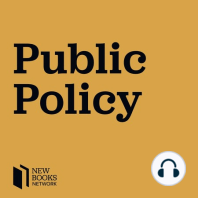23 min listen
Unavailable

Currently unavailable
Sam Quinones, “Dreamland: The True Tale of American’s Opiate Epidemic” (Bloomsbury Press, 2015)
Currently unavailable
Sam Quinones, “Dreamland: The True Tale of American’s Opiate Epidemic” (Bloomsbury Press, 2015)
ratings:
Length:
57 minutes
Released:
Sep 8, 2016
Format:
Podcast episode
Description
In the early 2000s, the press–at least in Boston, where I was living at the time–was full of shrill stories about drug-crazed addicts breaking into area pharmacies in search of something called “Oxycontin.” I had no idea what Oxycontin was, but I was pretty sure there must be something remarkable about it if ordinary drug fiends were risking jail time and worse by robbing mom-and-pop drug stores to get it.
As Sam Quinones explains in his remarkable book Dreamland: The True Tale of American’s Opiate Epidemic (Bloomsbury Press, 2015), the Oxycontin crime wave was an early moment in the emergence of a full-blown Opiate epidemic in the United States. For many young doctors working in “pain management in the 90s and naughts, Oxycontin was remarkable indeed. It gave them just what their predecessors in the eternal fight against pain lacked: a supposedly non-addictive opium-based medication that they could prescribe far and wide without fear of hooking their patients on it. And with all the best intentions, prescribe it far and wide these doctors did.
But it wasn’t non-addictive at all; masses of patients become dependent. And not only them. Drug-users learned that “Oxy” afforded a wonderful high, and it became highly coveted “on the street.” The rub was that this new “wonder drug” was either hard to get–unless you had access to a “Pill Mill”–and/or very expensive. So Oxycontin addicts got desperate. Some, like the ones the press was screaming about in Boston, stole the drug from the local CVS and the like. Most, however, turned to an old drug that was easier to get and cheaper: Black Tar Heroin from Mexico. In the wake of Oxycontin, Black Tar spread from the Southwest across much of the U.S., even to places like Western Massachusetts, where I live now and the heroin epidemic is in full, tragic swing.Learn more about your ad choices. Visit megaphone.fm/adchoices
As Sam Quinones explains in his remarkable book Dreamland: The True Tale of American’s Opiate Epidemic (Bloomsbury Press, 2015), the Oxycontin crime wave was an early moment in the emergence of a full-blown Opiate epidemic in the United States. For many young doctors working in “pain management in the 90s and naughts, Oxycontin was remarkable indeed. It gave them just what their predecessors in the eternal fight against pain lacked: a supposedly non-addictive opium-based medication that they could prescribe far and wide without fear of hooking their patients on it. And with all the best intentions, prescribe it far and wide these doctors did.
But it wasn’t non-addictive at all; masses of patients become dependent. And not only them. Drug-users learned that “Oxy” afforded a wonderful high, and it became highly coveted “on the street.” The rub was that this new “wonder drug” was either hard to get–unless you had access to a “Pill Mill”–and/or very expensive. So Oxycontin addicts got desperate. Some, like the ones the press was screaming about in Boston, stole the drug from the local CVS and the like. Most, however, turned to an old drug that was easier to get and cheaper: Black Tar Heroin from Mexico. In the wake of Oxycontin, Black Tar spread from the Southwest across much of the U.S., even to places like Western Massachusetts, where I live now and the heroin epidemic is in full, tragic swing.Learn more about your ad choices. Visit megaphone.fm/adchoices
Released:
Sep 8, 2016
Format:
Podcast episode
Titles in the series (100)
David Farber, "Crack: Rock Cocaine, Street Capitalism, and the Decade of Greed" (Cambridge UP, 2019): A shattering account of the crack cocaine years from award-winning American historian David Farber... by New Books in Public Policy